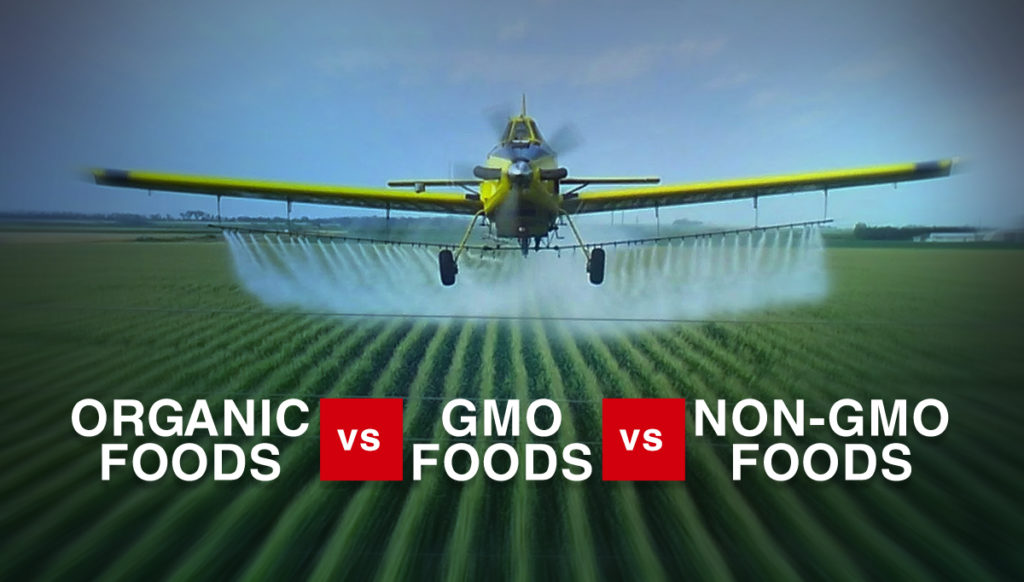One of the biggest hot topics of our time is the question of whether organic food is inherently better or healthier than genetically modified food (GMO). And what about Non-GMO? With more people seeking healthier lifestyles, having a solid diet is one of the key ingredients of maintaining such a lifestyle. However, few people are aware of what actually constitutes as organic and genetically modified food, and whether or not Non-GMO is organic.
At Solstice Health, we want to ensure that you and your family are knowledgeable about how to live healthy and happy lives. So, let’s go over some basic questions: What is organic food and does it provide any specific benefits for you and your family? Is genetically modified food something to be concerned about?
What Does “Organic” Mean?
For starters, the term “organic” simply refers to the method in which agricultural products are grown and processed. Strict Organic standards of food production are designed in a way that eliminates the use of chemicals and pesticides used in their ingredients and production. For example, animals raised for the purpose of food or dairy production would not be provided any growth hormones or antibiotics and are only fed with organic products. Another example would be how crops are grown. Organically grown crops are not treated with sludge-based fertilizer or synthetic pesticides. Organic crops are also not genetically engineered or provided artificial preservatives or ionizing radiation. Before labeling any product as “organic”, the farms and the companies that process or handle organic food go through a rigorous and continuously monitored certification process to assure that all standards are met.
Due to the lack of artificial and synthetic ingredients, it is important to note the distinct health benefits of consuming organic whole foods which is supported by research. Many also report being able to fully taste and enjoy the food more. Organic food is brought about the old-fashioned way and aims to be as fresh, natural, and healthy as possible. On the other hand, genetically modified organisms, or GMOs, differ greatly than their organic counterparts.
What Does GMO Mean?
GMOs are a result of a laboratory process in which genes are extracted from bacteria, viruses, insects, plants, animals and even humans, and are artificially combined with the genes of an unrelated plant or animal. This process is called “genetic engineering” or “genetic modification.” The resulting transgenic organisms can be found in a majority of processed foods in North America. Although there have been strides to improve nutritional benefits from genetic engineering, there has been no concrete evidence for any health benefits. Rather, GMOs have been connected to allergic reactions as well as sick, sterile and dead livestock. Lab animal tests have also shown that GMOs damage organs and overall health. Since the introduction of GMOs into the U.S. market in the 1990s, there is a direct correlation between the exponential rise of the use of glyphosate (Roundup) in production, and many human diseases and allergies.
If anything, GMO foods are only an economic benefit. They are easier to mass produce and more cost-efficient. For instance, genetically modified plants have been able to sustain herbicide tolerance and the ability to produce an inherent pesticide. This sounds like a money-saver for companies and a time-saver for farmers, but this ultimately means that the plant is toxic. This economic cost-savings should be measured against the extreme cost of resultant disease which has contributed to healthcare approaching 20% of our GDP. The FDA also does not require labeling of GMOs in food ingredient lists, so you need to research to know where your food is coming from.
What Does Non-GMO Mean?
While there certainly may be some benefit to Non-GMO food, it is important to be aware that all organic food by definition is Non-GMO, but that does not mean that all Non-GMO food is organic. The Non-GMO Project is a nonprofit that verifies the contents of GMO-free food which is made up of 0.9 percent or fewer genetically modified ingredients. The FDA, however, has not set any standards to regulate the use of this claim on any label, and therefore essentially anyone can claim their product is Non-GMO. Furthermore, there are no special restrictions which prohibit toxic pesticides from being used on Non-GMO crops. This makes it very difficult for consumers to research and understand where and how these products are sourced.
Unfortunately, mainstream media and large companies have a significant influence on how society views food production. They don’t tend to prioritize their audience’s health, so it is up to you to do your research. Based on the above information, it is clear that USDA Organic whole food is the healthiest and cleanest option for a disease prevention lifestyle. We’ve provided a quick snippet of what Organic, GMO, and Non-GMO foods are, but there is much more to learn. Research for yourself, for your family, and especially for your children.
For a list of resources and how to live a naturally healthier lifestyle, please contact us at 262-239-7353.


